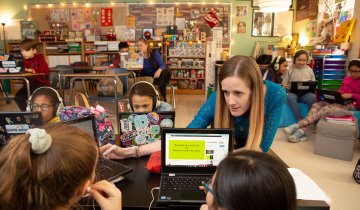School board meetings aren’t typically associated with shouting matches, protests and arrests.
But at forums across the country, school districts have experienced an uptick in heated rhetoric and aggressive behavior.
Frustrated community members are using meetings to voice their opposition to school policies, and in some cases, direct their anger at board members themselves.
So what is behind the antagonism for a traditionally nonpartisan entity that often floats under the radar of most voters? Several factors play a role.
1. Growing Politicization of Education
In an increasingly polarized country, some politicians and media personalities have targeted education. The national spotlight has provoked action at the local level. And for outraged community members, school boards can seem like an easy target because of their accessibility.
Across the country, conservative grassroots organizations and political action committees have focused on school boards as well, in some cases contributing hundreds of thousands of dollars to support candidates who share their politics. Additionally, the number of school board recall efforts has spiked.
2. Challenges of the Pandemic
A brief by Policy Analysis for California Education (PACE) showed that the pandemic drove some voters to be more engaged in education issues.
Increased engagement was largely due to dissatisfaction with the quality of education or unhappiness with educational decisions.
Indeed, reporting around raucous school board meetings does feature parents who are frustrated over remote learning. However, others oppose things like school closures and mask mandates for ideological reasons, turning meetings into culture war battles.
What Is the Role of a School Board?
A school board is a locally-elected governing body. They make policy, allocate funds and oversee other decisions that impact schools in its district. Additionally, it establishes standards for the performance of schools and evaluates superintendents.
A board consists of members of the community. In some states such as California, board members can earn salaries for their work.
During school board meetings, the community is given a chance to comment on issues being considered or voted on by the board.
3. Cultural Issues
The rights of marginalized groups have also increased engagement in education at the local level. Whether it is critical race theory, LGBTQ students, or ethnic studies, cultural issues are driving the surge in anger over school policy.
Part of the outrage can be traced to misinformation. School boards that adopt racial equity practices have been incorrectly targeted for promoting critical race theory—which is itself often misrepresented by national leaders, media outlets and online.




